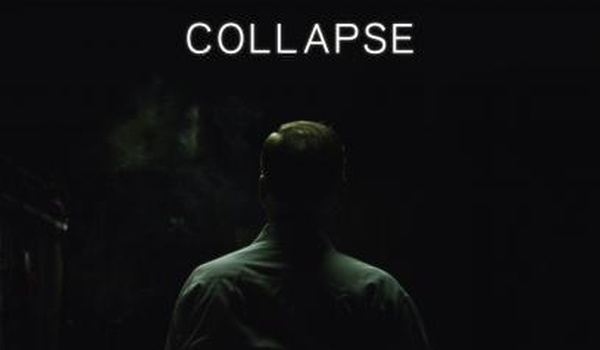![The Tragedy Of Our Times Defined By Anthropologist Michael Wesch [PopTech Video]](http://www.mutualresponsibility.org/wp-content/uploads/2012/09/michael-wesch.jpg)
![The Tragedy Of Our Times Defined By Anthropologist Michael Wesch [PopTech Video]](http://www.mutualresponsibility.org/wp-content/uploads/2012/09/michael-wesch.jpg)

6 Must Watch Movies On The Global Crisis
If you haven’t been in a coma the last couple of years, then you might have noticed that the economy is crashing, food and gas prices are on the rise, and if people weren’t protesting in your city square, then they were protesting in one close by. However, as shown by the following 6 films, these instances and many others are tightly interconnected, and there are people looking into what’s causing them, where they’re leading humanity, and what can be done about them. Collapse The present & future forecast of the world’s problems, & how they’re forcing humanity into a new era, through the lens of Michael C. Ruppert Meltdown: The Secret History Of The Global Financial Collapse The 2008 financial crash and the events that followed revealed humanity’s tight global interconnectedness & interdependence Blind Spot Peak oil’s complex multi-crisis & its challenge upon a society rooted in generations of self-interest values Inside Job How the commonly held value of “maximize your profit” led to the 2008 financial crisis Earth 2100 Crises unfold integrally, not individually, exceeding national & disciplinary borders, & forcing humanity to adopt a global approach to solving them Zeitgeist: Moving Forward The realization of the negative influence of a society that prominently values individual self-interest upon human development & the need to build a new kind of social influence that promotes people’s...![Collapse [Film]](http://www.mutualresponsibility.org/wp-content/uploads/2012/09/michael-ruppert.jpg)
Collapse [Film]
I’m talking about a revolution that’s probably the hardest kind, the kind that takes place in the human soul, in the human mind. To be able to tear everything down, throw everything out, and start with a completely fresh paper and say… ‘okay, how do we solve this problem?’” — Michael C. Ruppert Collapse depicts the present and future forecast of the world’s problems through the lens of Michael C. Ruppert, investigative journalist and author of Confronting Collapse: The Crisis of Energy and Money in a Post Peak Oil World, who discusses the myriad crises humanity faces and how they are forcing humanity into a new era. Collapse – Theatrical Movie Trailer What Will You Do When Oil Runs Out? Starting with peak oil, Ruppert clarifies how oil is literally everywhere in a person’s life… All plastic is oil. Most paints, all pesticides are made from oil. Everything from toothpaste, to toothbrushes, is made from oil. There are seven gallons of oil in every tire. There is nothing anywhere, in any combination, which will replace the edifice built by fossil fuels. Nothing. Peak oil is probably now very easy to explain. Much easier than it was a long time ago. People have felt what $147 a barrel of oil feels like.” …and how the running out of oil in the world will force humanity to make very big changes: The end of oil is like end of the way of life. We’re hitting a new era.” What Will You Do When Money Runs Out? Ruppert continues by painting a bleak fade-to-black picture of the world as it heads into the...![Earth 2100 [Film]](http://www.mutualresponsibility.org/wp-content/uploads/2012/08/earth-2100_600.jpg)
Earth 2100 [Film]
Based on current scientific research and expert views about the accumulating crises humanity is expected to face over the coming century, Earth 2100 is a predictive portrayal of the century through the life of Lucy, a fictional woman born in the U.S. in 2008. No Crisis Exists On Its Own Earth 2100 paints a picture of the global crisis’ tight interconnectedness, how no one crisis exists on its own and cannot be dealt with in a pin-point manner. What the film shows is that: an oil crisis becomes a food crisis, they both connect to increase climate change and global warming, which increases drought and affects a water crisis, bringing about famine and thus, mass immigration of people seeking food and water, as well as deforestation and mass animal and plant extinction, rising sea levels and thus, floods, which then bring about outbreaks of infectious diseases, and this all becomes intensified by rapidly increasing human population, increasing worldwide consumption demand and natural disasters. The Need To See Things At A Global Level In presenting this complicated global crisis tangle humanity is expected to face, i.e. many individual crises as one global, integral crisis, Earth 2100 fundamentally proposes the need for a change in people’s approach to the world, from approaching problems locally and nationally to approaching them globally. As mentioned toward the film’s close: [By 2100] we’re going to have joint management of water resources, of energy resources, of disaster management. We’re going to be living on a planet where we don’t see things at a national level, but we see things at a global level.” –Peter Gleick, Ph.D., world renowned water scientist, President...![Inside Job [Film]](http://www.mutualresponsibility.org/wp-content/uploads/2012/08/inside-job_600.jpg)
